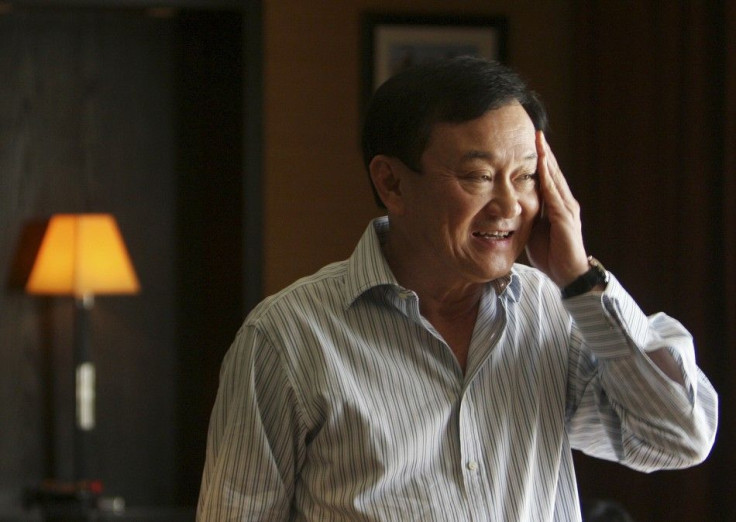What Would Thaksin’s Return Mean for Thailand?

Yingluck Shinawatra is poised to become Thailand's first female prime minister, but the international community is busy speculating about Yingluck's older brother.
Thaksin Shinawatra served as the country's political head from 2001 to 2006, when he was forcibly removed from power when the army seized control of the capital. The military accused Thaksin of corruption and abuse of power.
In 2008, Thaksin was officially indicted for corruption charges and sentenced to a two-year prison sentence. Abroad at the time, Thaksin has exiled himself to Dubai, eagerly awaiting a chance to return to Thailand without facing arrest.
Now that his little sister Yingluck has taken the seat at the head of the government he once occupied, many are awaiting Thaksin's return.
Thaksin is tremendously popular with Thailand's rural farmers, especially in the country's Northeast which is home to half of the country's impoverished people.
But he is not universally lauded by any means. Supporters of his successor Abhisit Vejjajiva, known as the Yellow Shirts, have thrown their own rallies, which were nearly as massive as the Red Shirt demonstrations in Bangkok last summer.
Additionally, Human Rights organizations have rebuked Thaksin for his violent war on drugs, which resulted in widespread arrests, disappearances and humanitarian abuses.
Yingluck says that she has reached a gentleman's agreement with the military, Thaksin's main detractor. While the military promised Yingluck and the Thai people a peaceful transition, a reappearance of Thaksin may change their mind.
The prime minister-elect has yet to say publicly whether or not her government will absolve the former leader of his charges, but she has mentioned that Pheu Thai will look into the Thaksin's charges, as well as those of other political prisoners.
I wanted to win and Pheu Thai Party wanted to win so we'll make sure that this committee will keep the fairness and... fair treatment for everyone. My brother will be one of the people who has to get the same, the same basis, Yingluck told the Australian Broadcasting company, referring to an investigatory panel led by Dr Kanit na Nakhon that will look into Thaksin's corruption charges.
Regardless of an official pardon, Yingluck would do well to make sure her brother does not return to power. No matter how good or bad his policy is, Thaksin is too polarizing a figure to be beneficial to Thailand in the short term. Bringing back Thaksin would undermine the progress that Yingluck and Pheu Thai made in Sunday's elections.
Historically, Thailand has been politically unstable. Only two Prime Ministers in its entire parliamentary history have ever served a full term. One was Thaksin, the other his successor Abhisit.
Abhisit has already agreed to give up his seat peacefully, even with the military at his side.
Bringing back Thaksin would disrupt the relative steadiness that has blessed Thailand for the last few years. It is likely that if the former prime minister were to return, the Yellow Shirts would again stage massive rallies calling for another exile.
The Yellow Shirts are almost as much anti-Thaksin as they are pro-Democratic Party, and large riots have the potential to be deadly.
Last year, around 90 people were killed in the Red Shirt demonstrations. Supporters of Thaksin flocked to Bangkok and forcefully took over sections of the city, prompting a military response that often involved tanks and live fire.
If the Pheu Thai party wants to avoid the fate of its earlier incantations, which twice ended in dissolution, it should try to distinguish Yingluck from her brother, who once called his little sister his clone.
With her significant parliamentary majority (299 of 500 seats), Yingluck is in a position to push through party policies. She can pick up were her brother left off economically, by further combating the poverty in Thailand.
But to do anything of value, Yingluck and Pheu Thai must stay in power, avoiding the always looming military coup that has struck Thai prime ministers so many times in the past.
© Copyright IBTimes 2024. All rights reserved.





















